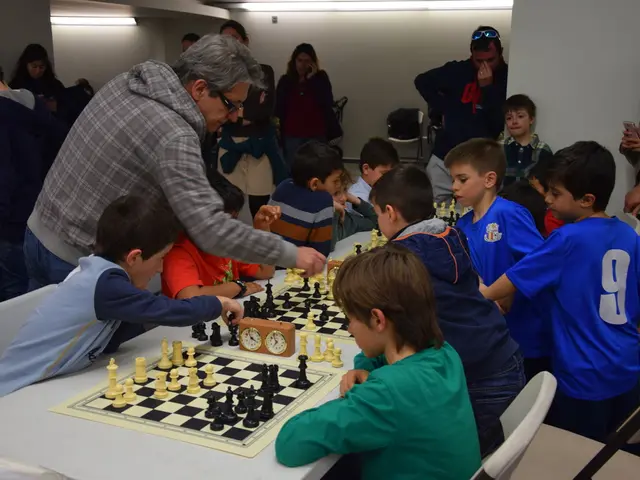AI's influence prompts college students in America to scrutinize the worth of higher education
In the evolving world of education, a significant debate is unfolding as professors are encouraged to design assignments that cannot be easily completed by an algorithm. This shift comes as GenAI, a powerful AI tool, is increasingly seen as a round-the-clock tutor, offering assistance for a fraction of the cost traditionally spent on education.
However, this development raises concerns. If AI can write a passable essay, the purpose of spending tens of thousands of dollars to learn how to do the same becomes questionable. The challenge for institutions lies in adapting quickly enough to integrate AI into education without undermining the value of a traditional education.
Some universities are taking proactive steps. The University of Basel, for instance, actively integrates generative AI tools in academic teaching and learning, providing guidelines for citing AI-generated content in scholarly work. The Justus Liebig University Giessen (JLU) hosts an AI Summer Camp 2025 focused on generative AI education, ethics, and practical workshops for students, doctoral candidates, and staff.
Students, too, are seeking guidance on how to use AI ethically and effectively. They are not demanding a ban on AI, but rather a thoughtful integration. A majority of students feel that their professors and schools do not generally allow the use of AI, and many universities have been slow to create clear policies regarding its use in coursework.
A startling 85% of U.S. college students have used generative AI for their coursework. They use GenAI for brainstorming ideas, summarizing complex articles, and generating first drafts. The tool offers immediate, personalized assistance that can dramatically increase productivity.
However, students also express fears. They worry that traditional skills learned in a classroom might be devalued due to AI. The concern is that AI may reduce critical thinking skills and intellectual engagement. Furthermore, a significant portion of students felt unprepared for an AI-driven workforce.
These fears have led students to call for more AI literacy in the curriculum. The new generation of students is demanding an education that prepares them for a future where thinking is more valuable than simple knowledge acquisition.
This disconnect between students and institutions is creating a trust gap. It is crucial for educational institutions to address these concerns, ensuring that the integration of AI serves to enhance, not replace, the traditional educational experience.








